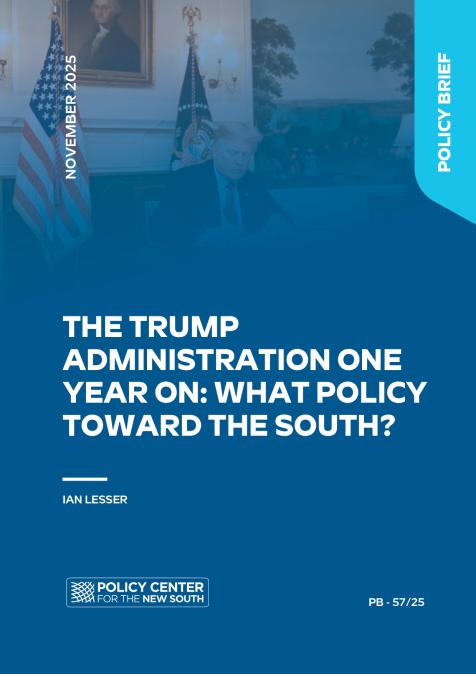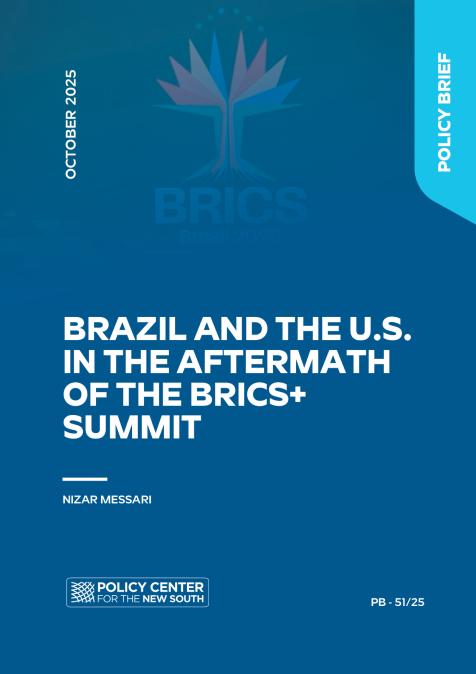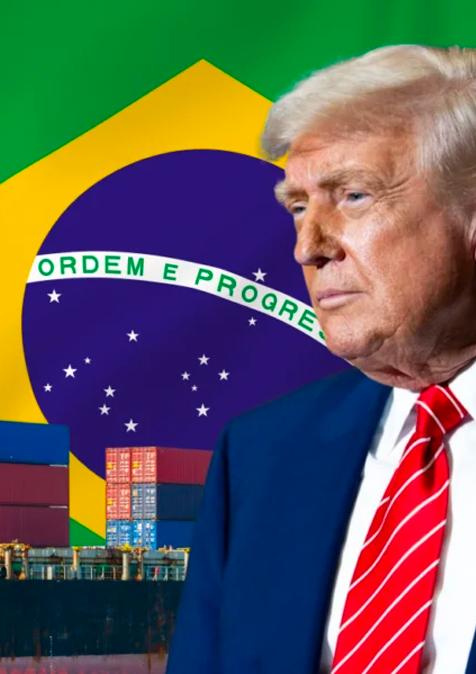Publications /
Opinion
The meeting between Donald Trump and Xi Jinping in Busan, South Korea, was more than an exercise in diplomacy. It was an emblematic performance of a world in transformation. Behind the formalities, the cameras, and the studied smiles lay an unspoken recognition: the world is no longer unipolar. The era of American supremacy, sustained for decades through its economic reach, military presence, and ideological projection, is giving way to a more diffuse, multipolar reality.
For much of the post-war period, Washington defined the tempo of global affairs. Its decisions reverberated across continents, its currency dominated global finance, and its language shaped the moral grammar of international order. Yet history moves in cycles, and what the United States is now experiencing is the same gravitational shift that once humbled great empires. China, long patient and deliberate, has risen not through war or conquest but through integration—a slow, almost imperceptible accumulation of economic strength, diplomatic influence, and technological ambition.
Trump personified the instinct of a declining power to preserve control through assertion; Xi embodied the quiet confidence of a civilization reacquainting itself with global centrality. The contrast between them was not merely political but temporal. Trump sought quick victories and headline moments; Xi, grounded in the Chinese philosophy of shi—the alignment of circumstances and timing—pursued endurance. It was a duel between the immediacy of electoral politics and the long arc of historical continuity.
This divergence reflects two civilizational logics. The United States remains shaped by a revolutionary ethos—the belief that progress is achieved through disruption, competition, and dominance. China, conversely, advances through restoration and equilibrium, emphasizing harmony rather than hegemony. Its conception of order is relational, not hierarchical: influence flows from moral credibility, restraint, and reciprocity rather than imposition. Power, for Beijing, is the ability to move the world without coercing it.
That distinction was manifest in Busan. Where Washington often wields sanctions and tariffs as blunt instruments, Beijing uses economic interdependence with surgical precision. Two commodities—soybeans and rare earth minerals—became symbols of a subtler form of statecraft. By redirecting its soybean imports from the United States to Brazil and Argentina, China exposed the fragility of Trump's electoral base. Rural America, once a stronghold of political loyalty, felt the cost of global interdependence more acutely than any speech could convey.
The second instrument was rarer still. Rare earth elements—indispensable for advanced technologies, defense industries, and renewable energy—are dominated by Chinese production. With a simple suggestion of export restrictions, Beijing sent tremors through Silicon Valley and the Pentagon alike. No threats, no missiles—only a reminder that the arteries of modern civilization run through Chinese supply chains. Dependence, as the twenty-first century proves, is the most refined form of leverage.
This dominance was not accidental; it was the result of Western decisions made decades earlier. In the 1980s and 1990s, growing environmental consciousness in Europe and North America led industries to outsource mining and refining—and with them, pollution—to China. What began as an act of ecological virtue became a transfer of strategic control. The West cleansed its skies but clouded its autonomy.
Ironically, the United States has employed similar tactics throughout its history, restricting uranium, computing technology, and semiconductors under the pretext of national security. The very mechanisms once used to contain others now constrain their creator. The instruments of power have not changed; only their wielder has.
The Busan summit illustrated not only Beijing's economic sophistication but also its psychological acumen. Xi allowed Trump to claim a symbolic victory—limited cooperation on fentanyl exports and a temporary tariff reprieve—while conceding almost nothing of substance. Letting one's counterpart believe in triumph is an art deeply rooted in Chinese diplomacy. In this, Xi's restraint outmaneuvered Trump's theatrics. The louder Washington proclaimed success, the clearer it became who truly dictated the game's rhythm.
Parallel to these maneuvers, China has been quietly building confidence in its currency—a process that Western economists and academics, often reluctant to study China’s development model through an unprejudiced lens, have long misunderstood. Contrary to their assumption that internationalization requires full financial liberalization, Beijing has chosen a different path—one grounded in prudence and tangible substance. By accumulating gold reserves, strengthening institutions, and expanding settlements in renminbi, it builds credibility through restraint and discipline. Meanwhile, the dollar rests on faith—literally, “In God We Trust”—and on the systemic abuse of that inflated privilege, a fact that should concern us all. The symbolism could not be more explicit: one rests on balance, the other on belief.
The wider message is philosophical. China's rise challenges the deterministic logic of the "Thucydides Trap," a theory popularized by Graham Allison, which posits that every rising power must inevitably clash with an established one. The Chinese experience suggests the opposite: that power transitions can unfold through harmony rather than confrontation. Western frameworks, forged through centuries of rivalry, are ill-suited to interpret a civilization whose endurance rests on patience, adaptation, and time.
Yet China's path is not without contradictions. Its growing global influence invites scrutiny: how can it reconcile a rhetoric of cooperation with actions perceived as assertive in the South China Sea, Taiwan, and beyond? The challenge for Beijing is not only to project strength but to embody legitimacy—to demonstrate that its leadership can be inclusive, predictable, and principled.
Amid this global recalibration, Europe finds itself adrift. The continent stands at a critical juncture, caught between strategic dependence on the United States and economic entanglement with China. It must urgently redefine autonomy—not as isolation, but as the capacity to act with coherence. That means investing in industrial revival, technological sovereignty, and credible diplomacy. If Europe learns to harmonize values with interests, it may yet shape the century rather than be shaped by it.
Latin America, too, stands at a crossroads in this unfolding order. Long anchored within the Western hemisphere’s strategic orbit, the region has begun to explore new alignments that transcend its historic dependency on the United States. The expansion of BRICS, emerging South–South partnerships, and China’s growing presence in infrastructure, energy, and technology reveal a continent quietly recalibrating its position. For nations weary of conditionality and paternalism, Beijing’s model of pragmatic engagement—focused on trade, logistics, and development finance—offers an appealing alternative. Yet this diversification also demands caution: autonomy cannot be built merely by changing patrons. Latin America must remain vigilant to potential risks and ensure that its policies safeguard national interests while embracing the opportunities of a multipolar age.
Africa, meanwhile, stands as both beneficiary and testing ground of this global reconfiguration. Long treated as an object of Western charity and conditionality, the continent now finds itself courted as a strategic partner in a multipolar world. China’s approach—centered on infrastructure, credit, and long-term engagement—has redefined development diplomacy, contrasting with the transactional and moralizing posture that has often characterized Western aid. This new engagement, if navigated with care, could usher in a future where Africa is not merely a partner but a leader in the global arena. The challenge for African nations is to transform connectivity into autonomy—to ensure that partnership translates into empowerment rather than another cycle of extraction. In that sense, Africa embodies the very question that defines this century: whether global integration can unfold through reciprocity rather than hierarchy.
The world's balance is not shifting solely eastward; it is dispersing. Power today is polyphonic—expressed through trade, technology, and trust as much as through armies. The twenty-first century will not be ruled by those who shout the loudest, but by those who listen longest—those who discern the nuances of power in this polyphonic age.
As the lights dimmed in Busan, Trump sought validation while Xi awaited vindication from history. The symbolism was unmistakable: one man governed by the urgency of applause, the other guided by the patience of time. In the long arc of civilization, victory belongs not to those who conquer, but to those who endure—to those who understand that history’s rhythm is written as much in silence as in sound.











